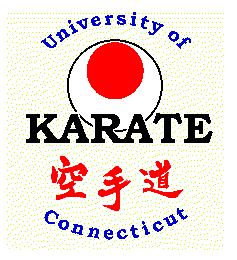
Shotokan Karate-Do International
Japan Karate Association Connecticut
Japan Karate Association Connecticut
 |
Shotokan Karate-Do International Japan Karate Association Connecticut |
|---|
What's New? |
SKDI Spring Championship Results | SKDI Summer Training Camp | Training Schedule | Events | Kyu & Dan Exam Results |
|---|


Training at UConn
Beginner and advanced classes for men, women and children are held at Hawley Armory (near the library at the center of the UConn campus in Storrs/Mansfield, Connecticut). Community members and visitors are welcome to come train with us or observe classes. NOTE: No classes will be conducted at UConn this Summer. Classes will resume at the end of August. We encourage local students to train at Karate Spirit in Coventry. Please contact Sensei John Seifert (Karate Spirit Dojo) for details.
Location HAWLEY ARMORY GYM HAWLEY ARMORY MAT ROOM ZOOM ONLINE CLASSES If you are interested in attending the Zoom classes, please contact us at mrjacobs98@yahoo.com.
KARATE-DO (The "empty hands way")
The "kara" of karate means "to render oneself empty". Master Gichin Funakoshi, the "Father of Japanese Karate", wrote, "The student of karate-do must render his mind empty of selfishness and wickedness in an effort to react appropriately toward anything he may encounter". Karate's roots go back to the Shao Lin and other ancient fighting arts of China, where physical training methods were used to build the endurance and strength required to carry out the rigid discipline of the religion. These arts eventually spread to Okinawa and then to Japan where karate was refined into its present-day form. In 1955, the Japan Karate Association (JKA) was established with Master Funakoshi as chief instructor. The JKA trained and sent instructors throughout the world, which is one the the primary reasons karate is as well known and popular as it is today.
Master Gichin Funakoshi
As a form of physical exercise, karate is almost without equal. Utilizing all parts of the body, karate training increases the strength, speed, stamina, coordination, reflexes, and balance of the karateka (student of karate). It is the ultimate art of unarmed self-defense. Like knowing how to swim, you always have it with you. However, Master Funakoshi saw karate not only as a means of conditioning or self-defense, but also as a way to build character and mental discipline. The karateka is taught not only the physical techniques, but also how to use his skills with wisdom and discretion. Among the many mental benefits of karate training are improved self-awareness, confidence, discipline and emotional control.
The Japan Karate Association
and the UConn JKA
With millions of members in over 200 countries, the Japan Karate Association (JKA) is the largest martial arts school in the world. The JKA teaches karate in the traditional Japanese way, emphasizing strong stances and powerful basic technique as well as mastery of kata (form) and kumite (sparring). In the United States, the JKA has a main school in each region which trains instructors and ensures the maintenance of high standards in all of the JKA branch schools. Shotokan Karate-Do International, which is based in New York City, is headquarters for all JKA schools in the region. The SKDI was founded in 1968 by Master Masataka Mori, 9th dan (1932-2018). The UConn JKA is dedicated to the continuation of traditional karate-do as a physical and mental discipline designed to improve the overall quality of the student's life. Master Masataka Mori
THE DOJO KUN ("School Code")The Dojo Kun (in brown type below) is recited at each practice (the black type is a more literal translation of the original Japanese). It serves to remind students that karate-do is not just about training the body, but also about perfecting character and attitude. It also reminds students that the physical and mental strength learned through karate must be accompanied by a moral code of respect and restraint.
SEEK PERFECTION OF CHARACTER
Strive for completion of character
BE FAITHFUL
Defend the path of truth
ENDEAVORFoster the spirit of effort
RESPECT OTHERSRespect the principles of etiquette
REFRAIN FROM VIOLENT BEHAVIORGuard against impetuous courage
See also Sensei Funakoshi's Twenty Precepts (the Niju Kun)